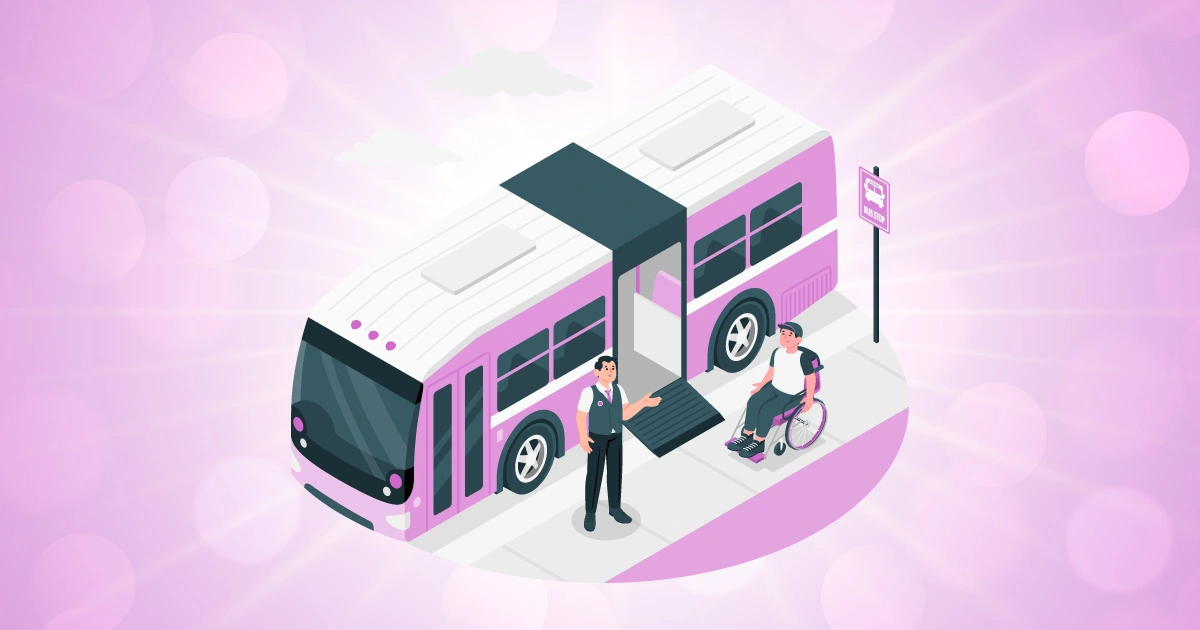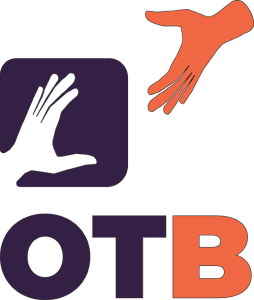NDIS transport support helps people with disabilities travel. It takes them to healthcare, work, school, and social events. This service is safe and reliable. For people with mobility issues, it is a must. Without it, they might feel lonely and miss out on their community.
The goal of NDIS transport support is to make travel easier for people with disabilities. It helps them move around safely and on their own. This service improves their lives by giving them better access to healthcare and chances to meet others. By solving transport problems, it encourages inclusion and independence, helping people live happier lives.
In this blog, we will explore why NDIS transport supports services are so important, especially for accessing healthcare and appointments.
Why NDIS Transport Supports Matters?
NDIS transport supports helps people with disabilities live on their own. It offers transportation that fits each person’s needs. They can use buses, private cars, or rides with support workers. This allows them to get to work, school, doctor visits, or social events.
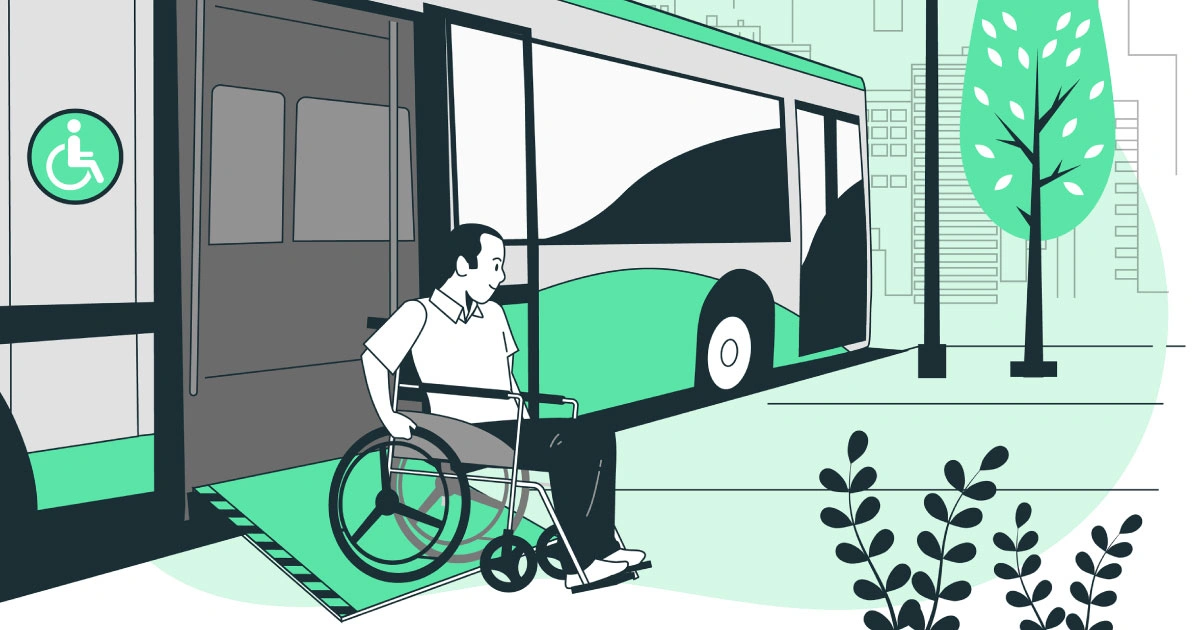
Who Can Access NDIS Transport Supports?
To get NDIS transport supports, a person must have trouble moving around and need help to travel. NDIS checks if they need transport to do daily activities or use important services.
Benefits of NDIS Transport for Participants
- Increased Independence and Autonomy
NDIS transport supports allows people with disabilities to travel on their own. They can go to work, school, or appointments without relying on others. This boosts their confidence and helps them become more independent. - Enhanced Social and Community Participation
Accessible transport helps people join in and have fun. They can see friends, go to events, and take part in their community. This helps them feel happier and less alone. It also makes them feel like they belong. - Access to Essential Services and Daily Activities
With NDIS transport, people can go to doctor visits, shop, and do daily tasks more easily. This support removes barriers and makes life simpler, helping them stay active in their everyday lives.
Why is NDIS Transport Funding Essential?
NDIS transport funding is important for people with disabilities in Australia. It helps them live on their own and use key services. With this support, they can go to work, school, and doctor visits without needing help. This gives them the freedom to handle their daily tasks by themselves.
- It ensures safety and reliability. NDIS transport supports gives people safe and reliable ways to travel. It lowers the risks of having trouble getting around and means they don’t have to depend on others for rides.
- It offers flexibility and convenience. NDIS transport helps people travel when they need to. They can go to work, school, doctor visits, or social events. It lets them choose their own time to travel. This makes them more independent because they don’t have to ask family or friends for rides.
- It promotes community involvement. Transport helps people with disabilities take part in their communities. They can go to events, meet friends, and do fun activities nearby. This helps them feel happy and less lonely.
NDIS transport helps people join in and feel part of their community. They can go to events, see friends, and make new connections. This makes them feel happier and improves their mental health.
How to Make the Most of Your NDIS Transport Supports?
Using your NDIS transport supports can give you more freedom. With good planning, you can visit important places like the doctor, events, or services. You won’t have to ask your family or friends for help. By knowing what you need and using your transport support wisely, you can get the most out of your NDIS plan. Here are some simple tips to help you use your NDIS transport better.
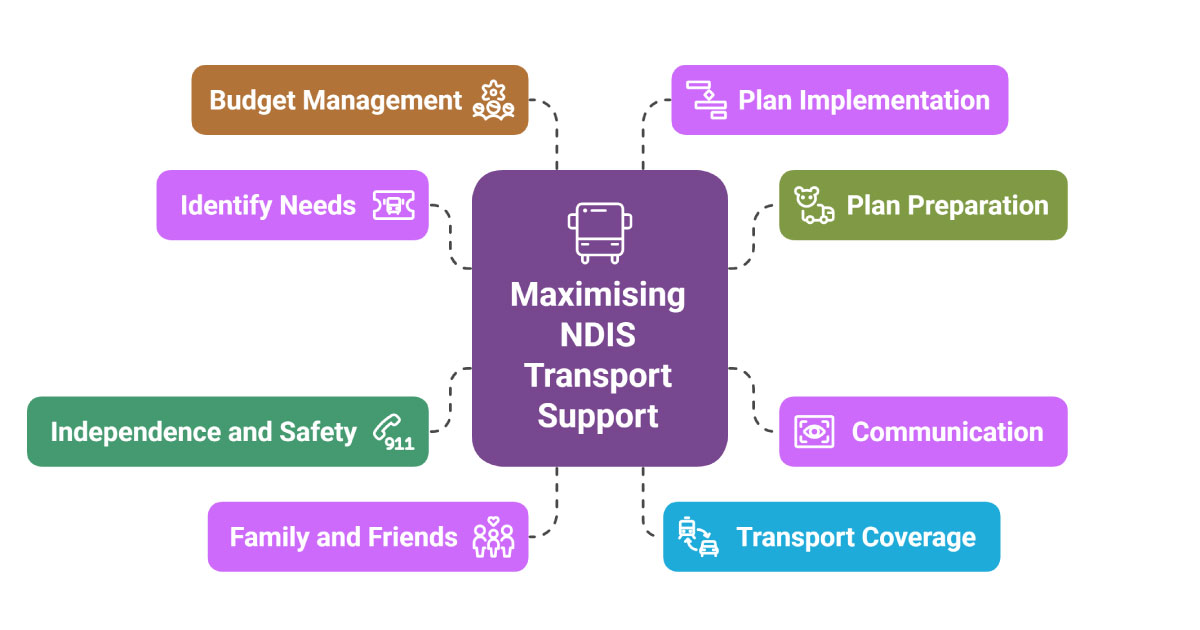
1. Identify Your Personal Needs and Goals
The first step to using your NDIS transport is knowing what you need. Think about where you go each day. Do you visit school, work, the doctor, or friends? This will help you see what support you need. Maybe you need help with buses or trains. Or you might need a special car. When you know your needs, it’s easier to get the right help.
Tip: Write down where you go every day for a week. This will help you see your routine. You can use this when talking to your NDIS planner to show what support you need.
2. Prepare Your Plan Carefully
A good NDIS plan helps you get the support you need. Work with your NDIS planner or support coordinator. Talk about your transport needs. Explain why you need help, how often, and what kind. Show papers like medical reports to prove you need transport support.
Tip: Make a list of where you need to go, like work, school, or the doctor. Write how transport helps you get there. This will make sure your plan gives you all the help you need.
3. Be Clear and Direct in Your Communication
Talk clearly with your NDIS planner. Use simple words to explain your transport needs. Don’t use hard or confusing words. Say exactly what you need, like help getting to the doctor, work, or friends. Being clear helps you get the right support.
Tip: Make a list of key things to say before meeting your planner. This will help you stay focused. It also makes sure you don’t forget anything important.
4. Highlight the Need for Independence, Safety, and Social Opportunities
Talk about why transport is important for you. Say it helps you be independent and safe. Transport is not just about trips. It helps you live your life and join your community. Tell how it lets you go to events, see friends, and get what you need. Explain how it makes you feel safe and connected.
Tip: Share your stories with your planner. Talk about how transport helps you be independent. Say how not having transport has made things hard for you. This helps them understand your needs better.
5. Consider Help from Family or Friends
The NDIS doesn’t pay for transport from family or friends. But it’s good to mention their help in your plan. Many people with disabilities rely on loved ones for rides. Talking about this shows the full picture of what you need.
Tip: Add the help you get with transport from family or friends in your NDIS plan. This shows your planner the support you already have. It can affect your funding for transport.
6. Ensure All Your Transport Needs Are Covered
Be clear about what transport you need. Do you use buses, taxis, or need changes to your car? Think about short trips or long-distance travel. Give details to help the NDIS know what to fund for you.
Tip: Split your transport needs into types of services. Do you need taxis or wheelchair-friendly rides? Say how often you need them. Is it every day, once a week, or just for some appointments?
7. Reject Plans That Don’t Meet Your Needs
Make sure your NDIS plan covers all your transport needs. If it doesn’t give enough support, speak up. You can ask for a review and get changes made. Plans can be changed if your needs grow.
Tip: If your plan does not match your transport needs, talk to your NDIS planner or support coordinator. Ask for a plan review. It’s your right to make sure your plan works for you.
8. Manage Your Budget Wisely
Once your NDIS plan starts, keep an eye on your transport budget. Check your spending often. This helps you stick to your budget and not run out of money. If you need more funds, talk to your support coordinator.
Tip: Write down all your transport costs. Check them often. This helps you see how you spend and make changes if needed.
9. Start Your Plan as Soon as It’s Approved
Start using your transport support right away. Don’t wait too long or you might miss out. Using it on time helps you get to important things like doctors and community events.
Tip: Book an appointment with your NDIS transport provider as soon as your plan is approved. Start using your transport funding right away.
10. Maximise the Use of Your Transport Resources
If you don’t use your transport funding, you might lose it. Use it during your plan period to meet your needs. This shows that transport help is important for you.
Tip: Check your transport funding balance often. Make sure you are using all of it. If you’re unsure, ask your support coordinator for help. They can guide you on how to use it before your plan ends.
How to Select the Best Disability Transport Service Provider?
Picking the right transport service is very important. A good service makes life easier. The wrong one can be frustrating. Think carefully before you choose.
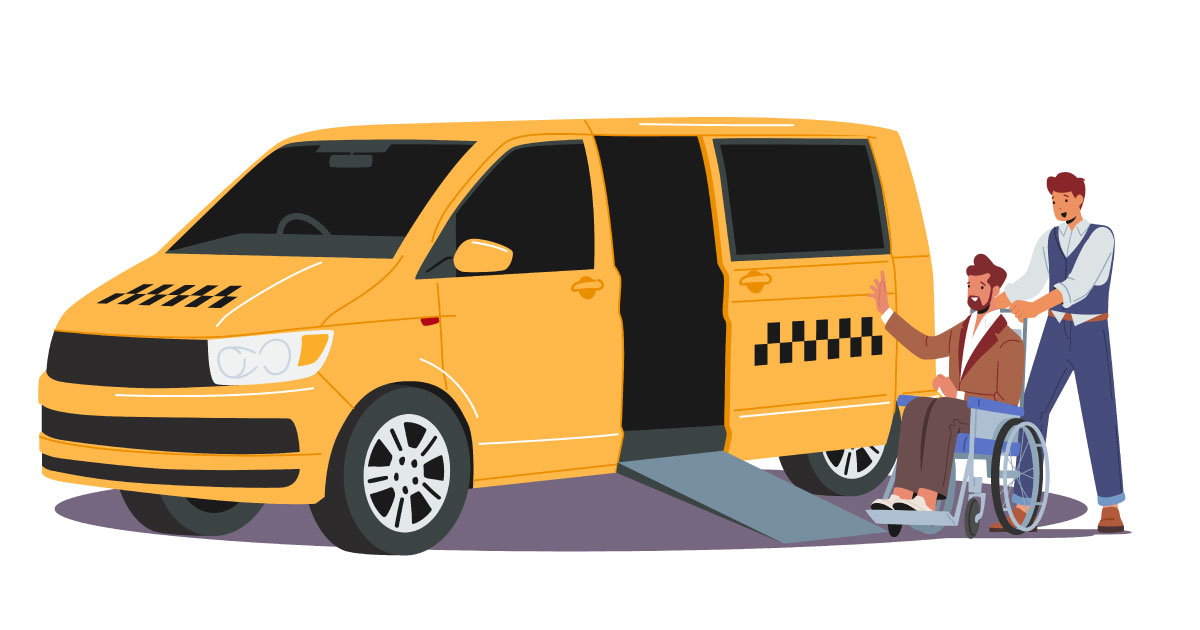
1. Check Service Availability and Coverage
Check if the transport service works in your area. Make sure they can take you to places you need to go, like the doctor or social events.
Tip: Ask if the provider can meet your travel needs, both short and long distances.
2. Look for Accessible Vehicles
Check if the provider has vehicles that suit your needs. They should be wheelchair-friendly or work with your mobility aids. The service should keep you safe and comfortable.
Tip: Check if the provider offers vehicles with ramps, lifts, or other accessibility features.
3. Evaluate Driver Experience and Training
Good drivers are very important. Ask if they are trained to help people with disabilities. They should help you get in and out of the vehicle safely. This makes your trip more comfortable.
Tip: Choose a provider that hires drivers who are trained in disability support.
4. Check for Reliability and Punctuality
A reliable service is very important. The provider must be on time. Being late can be stressful for work or appointments. Check reviews or ask others if they are always on time.
Tip: Ensure the provider has a good reputation for being on time and reliable.
5. Compare Costs and Funding Options
Check if the service fits your budget. Make sure it works with your NDIS plan. Compare prices and choose one you can afford.
Tip: Talk to your NDIS planner about how much transport support funding is available.
6. Look for Personalisation and Flexibility
Everyone needs different support. Good transport services will adjust to your needs. They should fit your schedule and be flexible if things change.
Tip: Ask if the provider can make last-minute changes to your transport arrangements.
7. Check for Customer Support
Good customer service is very important. The provider should be easy to contact. They should help with bookings and answer your questions. Great support makes everything easier.
Tip: Test how responsive the provider is by asking a few questions before you sign up.
8. Read Reviews and Ask for References
Read reviews before you decide. They show how good the service is. You can also ask the provider for references. This helps you learn about others’ experiences.
Tip: Check online reviews and talk to others who have used the service.
9. Ensure Safety and Insurance
Safety is very important. The provider must have insurance to keep you safe. They should follow all safety rules for disability transport.
Tip: Confirm that the provider has insurance and safety policies in place.
10. Try a Test Run
Try the service first if you can. A trial helps you see if it’s good and reliable. You can check the driver and the vehicle’s accessibility.
Tip: Book a trial ride to check the service quality and comfort.
To Sum Up
NDIS transport is very important. It helps people with disabilities get to doctors and therapy. Without it, they might miss the care they need. Disability transport helps people stay healthy. It makes sure they get care on time. It also helps them stay independent and part of their community.
NDIS transport is very important. It helps people with disabilities get to healthcare easily. Without it, going to appointments can be hard. This service gives people freedom and less worry about transport. OTB Support can help. To learn how we can make travel simple for you contact us today!
